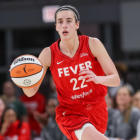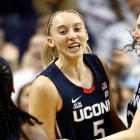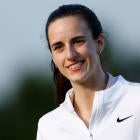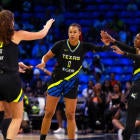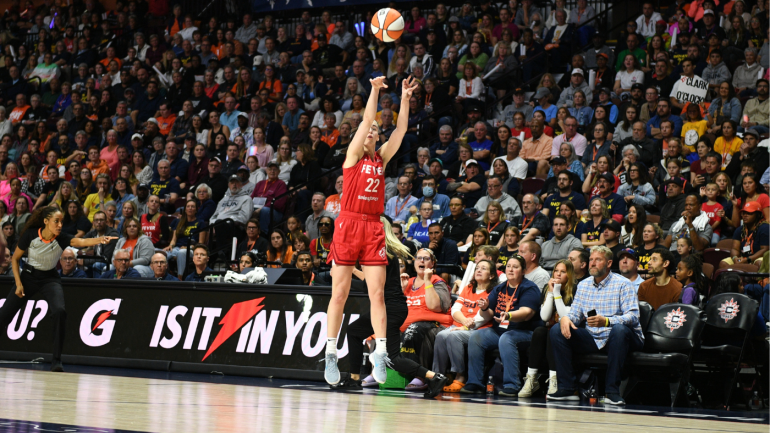
Ever since her days at Iowa, Caitlin Clark's unique shooting range has captivated audiences and terrified opponents. She's a threat from the second she crosses halfcourt, which warps the defense and opens up space for her to use her brilliant playmaking skills to set up teammates.
During an appearance on CBS' 60 Minutes on Sunday, Clark told Jon Wertheim the story of how she started developing her long-range shot. After returning home from a trip to see the Minnesota Lynx play as a kid, she convinced her dad to do a construction project.
Clark: Like begging my dad to, like, tear up some grass and pour more concrete so I could have an entire three-point line in my driveway.
Wertheim: Did that really happen? You-- you extended your range--
Clark: Oh yeah.
Wertheim: --by dumpin' more concrete?
Clark: Yeah. 'cause it was, like, kind of slanted. Our driveway was, like, slanted, so I only had a three-point line on one side of the driveway. So… told my dad he had to tear up all this grass, and he did.
While Clark made her biggest mark as a playmaker during her historic rookie season, she also led the league in 3-point attempts (355), makes (122) and finished 30th in percentage (34.4). Many of them came from well behind the arc.
The WNBA 3-point line is 22 feet, 1 and 3/4 inches. Clark took 5.7 attempts per game from 25-plus feet, which led the league by a wide margin, and shot 34.4% on those efforts. She also took 51 shots from 30-34 feet, and made 33.3% of them. The only other player in the league even in double figures in attempts from that distance was Sabrina Ionescu with 13.
She said she has to earn the right to launch from back there.
Clark: I only shoot from back there in games if I've, like, made a couple. Then you get a free pass to, like, launch-- launch a long three.
Wertheim: So that's a free pass with the coach? Or that's a free pass with yourself, with your own basketball values--
Clark: Both, both, both.
Clark doesn't know her exact range, which she contends is actually a benefit, but admitted that she likes to get a sense for where the logo is on each court.
Wertheim: What would you say your range is?
Clark: I don't know. Sometimes I -- I feel like I'm closer than I -- than I am. Like, I don't feel that far back, especially in a game. I don't know. I kinda just lose sight of where I actually am, which is probably a good thing.
Wertheim: But you know you're, like, one dribble past mid-court sometimes.
Clark: Yeah, couple dribbles past mid-court.
Wertheim voice-over: Part of her process: gauging the distance … this isn't like shooting a free throw. Logos vary court-to-court.
Clark: Like I would always wanna see how big the logo is. 'Cause, like, some people have, like, bigger logos at center court, some have smaller ones. So it's, like, if it's pretty big, I can usually get there.
For the first time in more than 11 months, Clark will finally get an extended break after the Fever were eliminated from the playoffs in the first round by the Connecticut Sun. We saw how much she improved after the Olympic break, and after a full offseason it will be no surprise if she comes back even better.
If that means raising her 3-point percentage even higher, that's bad news for the rest of the league.









